Introduction
The waste management and recycling industry is undergoing a significant transformation as it faces increasing pressure to adopt sustainable practices. With global concerns over climate change, resource depletion, and pollution, technological advancements are playing a critical role in reshaping how waste is collected, processed, and recycled.
In 2024, cutting-edge technologies like artificial intelligence (AI), robotics, and blockchain are poised to drive more efficient, eco-friendly waste management systems. These innovations are not only reducing the environmental footprint but also creating new opportunities for businesses and governments to address the growing waste crisis. This article explores the top technology trends that are revolutionizing industry and paving the way for a cleaner, more sustainable future.
1. AI-Powered Waste Sorting
Artificial Intelligence (AI) is revolutionizing the sorting process in waste management. AI-powered machines, equipped with advanced sensors and machine learning algorithms, can efficiently detect and sort different types of waste materials like plastics, metals, and organic matter. This automation improves the accuracy and speed of recycling, minimizing human error and operational costs.
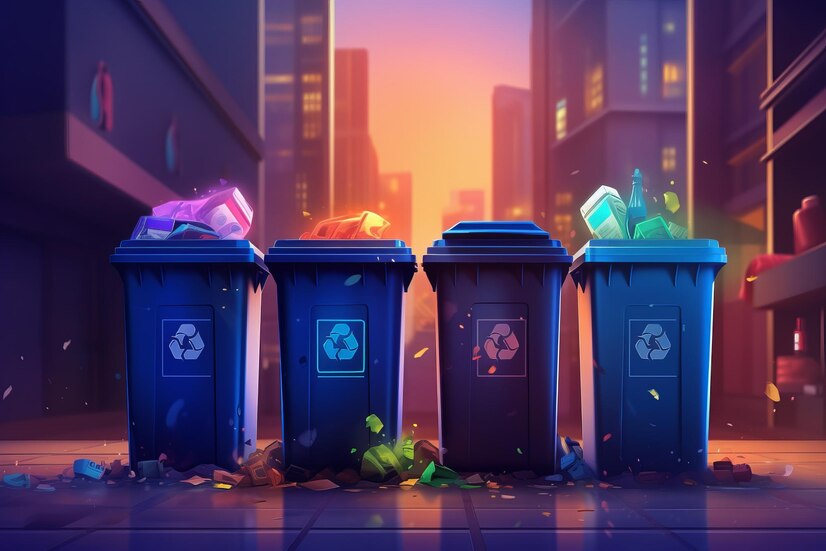
2. Robotic Recycling Systems
Robotic arms equipped with AI are being deployed to sort and separate recyclable materials from non-recyclable waste. These robots are designed to handle high volumes of waste in recycling plants with precision. This automation reduces reliance on manual labor and improves recycling throughput.
3. IoT-Enabled Smart Bins
Smart bins using Internet of Things (IoT) technology help optimize waste collection by monitoring bin capacity and sending alerts to waste collection services when they need to be emptied. This reduces unnecessary collection trips, saving fuel and reducing carbon emissions, while also preventing overflow issues in public spaces.
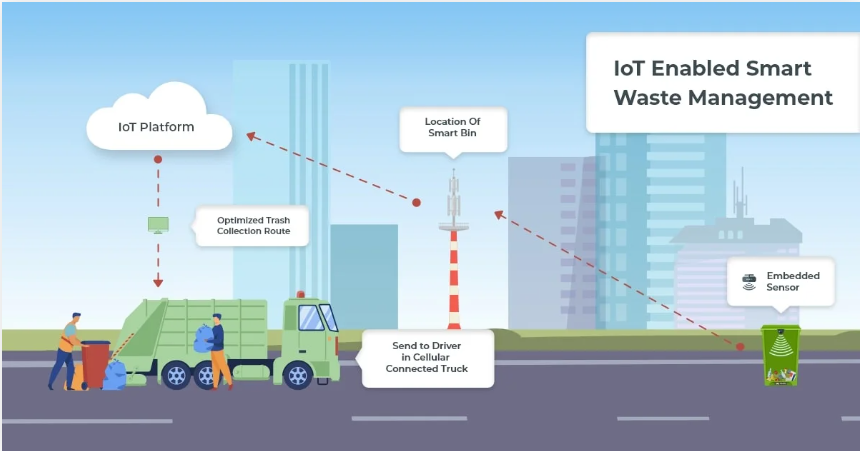
4. Blockchain for Waste Tracking
Blockchain technology is being used to enhance transparency and traceability in the waste management process. From the collection to the final disposal or recycling of waste, blockchain can provide a secure, immutable record of the waste lifecycle. This improves accountability and ensures compliance with environmental regulations.
5. Waste-to-Energy (WTE) Technologies
Converting waste into energy is an emerging trend that helps reduce landfill waste while generating power. New technologies like pyrolysis, gasification, and anaerobic digestion are being developed to convert organic waste into biofuels or electricity. These WTE solutions reduce greenhouse gas emissions and create renewable energy sources.
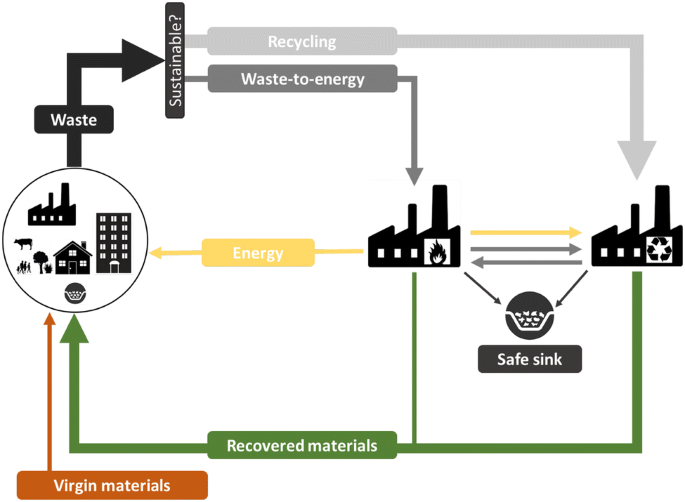
6. Advanced Recycling Techniques (Chemical and Molecular Recycling)
Traditional recycling processes often degrade the quality of materials, but advanced chemical recycling technologies can break down plastics and other materials into their original molecular forms. This process enables materials to be reused in high-quality applications, reducing the need for virgin resources.
7. 3D Printing with Recycled Materials
Recycling waste materials, such as plastics, into usable raw materials for 3D printing is gaining momentum. 3D printers can create new products from recycled materials, reducing the demand for new resources and minimizing waste generation. This trend promotes a circular economy, where waste is repurposed into new products.
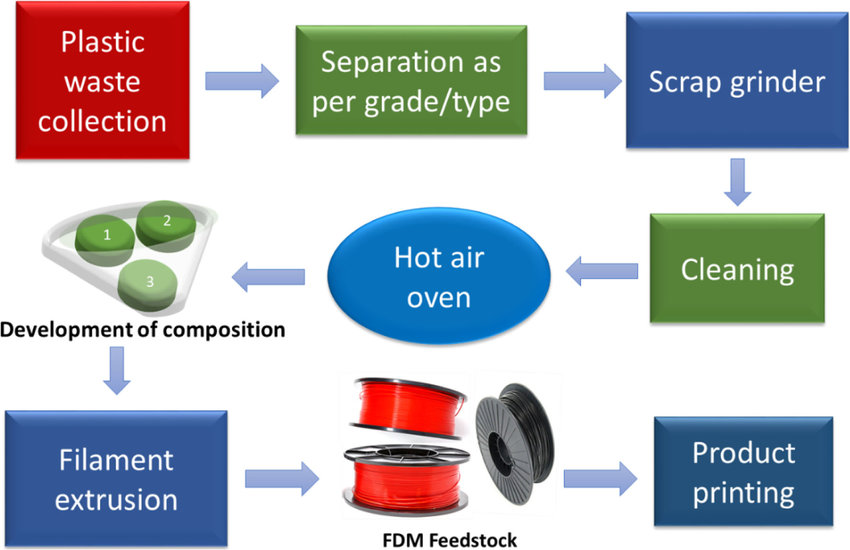
8. Circular Economy Platforms
Digital platforms focused on the circular economy are helping industries share, reuse, and recycle resources more efficiently. These platforms connect businesses, suppliers, and consumers to promote product lifecycle extension, material reuse, and sustainability initiatives, fostering collaboration in waste management.
9. Smart Waste Management Software
New software solutions are helping cities, organizations, and businesses manage waste more effectively by providing real-time data on waste generation, collection, and disposal patterns. Predictive analytics can optimize routes for waste collection, reducing fuel consumption and improving operational efficiency.
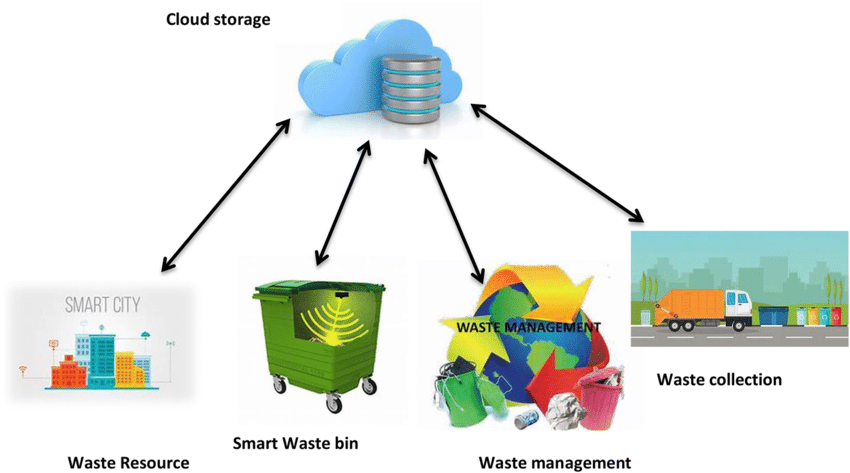
10. Biodegradable and Compostable Materials
Innovations in biodegradable and compostable materials are reducing the environmental impact of single-use plastics and packaging. These materials break down naturally in composting environments, reducing the amount of waste that ends up in landfills and oceans.
Conclusion
As we move through 2024, the waste management and recycling industry is embracing a wave of technological innovations that promise to create a more sustainable and efficient future. From AI-powered waste sorting systems to advanced recycling techniques, these trends are not only improving operational efficiency but also reducing environmental impact.
As businesses, governments, and consumers work together to adopt these new technologies, the industry will continue to shift toward a circular economy where waste is minimized, and resources are repurposed. By leveraging these advancements, the waste management sector is positioned to play a vital role in building a more sustainable world for future generations.
